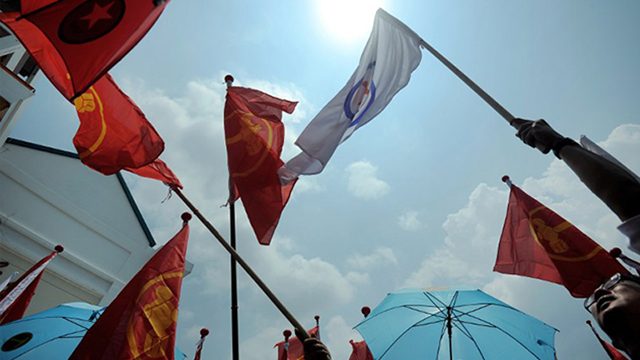SUMMARY
This is AI generated summarization, which may have errors. For context, always refer to the full article.

MANILA, Philippines – Almost a month after Singapore celebrated its 50th founding anniversary, it is set to stage another round of parliamentary elections on Friday, September 11 – this time, the first in the country’s history without its founding leader Lee Kuan Yew, who died March 2015.
This year’s elections come after President Tony Tan announced on August 25 the dissolution of Parliament. The country’s Constitution dictates that the parliamentary elections in Singapore happen within 3 months after the dissolution of the parliament.
It is one of the 2 elections recognized in Singapore – the other being the presidential elections, which happen every 6 years.
Here’s a short guide to Singapore’s parliamentary elections:
Poll preparations
The Elections Department, which is under the Prime Minister’s office, is responsible for planning and preparing the presidential and parliamentary elections in the country.
Before the elections, the Elections Department updates its list of all registered voters belonging to an electoral division. The legal age of voting in Singapore in 21.
New electoral boundaries are also set before elections to determine the number of seats to be contested. For this year, a total of 89 seats in the Parliament are up for grabs in this year’s elections, based on the following electoral divisions:
- 13 Single Member Constituencies (SMCs), which have 1 seat each in Parliament
- 29 Group Representation Constituencies (GRCs), which have 4 to 6 seats each in Parliament
GRCs vote a party slate, not individuals.
Nominations
After the dissolution of the Parliament, the president issues a Writ of Election, which specifies the date and place for the nomination for election candidates. For this year, the nomination was set on September 1.
Nomination is only open for an hour – from 11 am to 12 noon. A notice of contested election will be issued to those nominated, thereby allowing them to campaign.
In the event that only one candidate in SMC or one group of candidates in GRC is nominated, the candidate or group is automatically elected in the Parliament. For this year, though, multiple candidates and groups are nominated in all SMCs and GRCs.
Candidates are also required to make a cash deposit between the date of the writ of election and 12 noon on nomination day an amount “equal to 8% of the total allowances payable to an MP in the preceding calendar year.”
This amount will be returned to the candidate who will get “more than one-eighth of the total number of valid votes in the electoral division he or she contests but who is not elected.” Otherwise, the amount would be diverted to the government’s bank account.
Campaigning
Campaigning immediately follows the nomination and lasts for a very short 9 days. The campaign dates for this year is from September 1 to 9.
No candidate is allowed to advertise over television, in newspapers, magazines or periodicals, or in a public place, unless authorized by a Returning Officer.
Candidates are only restricted on the following campaign activities:
- House-to-house visits;
- Pamphlets;
- Posters and banners;
- Campaigning while using cars;
- Internet advertising (within the confines of the rules of regarding election advertising);
- Election rallies and meetings.
Candidates are only allowed to spend the following amounts for their campaign:
- in GRC, Sg$4.00 for each elector divided by the number of candidates in the group
- in SMC, Sg$4.00 for each elector
The day before the elections is considered a ‘cooling-off day’ – a 24-hour campaign ban period to help voters reflect before heading off to the polls. This year, the cooling-off day is September 10.
Election day
Before election day – or Polling Day – voters will receive a poll card via mail. They need to cast their vote to their allotted polling stations between 8am and 8pm.
Overseas polling stations will also be allotted for citizens abroad. Overseas voting may open before the Polling Day, but it has to close before elections end in Singapore.
After the closing of polls, the ballot boxes are sealed and transported to their respective counting centers. – With research by Zebadiah Canero and Reynaldo Santos Jr / Rappler.com
SOURCES
Add a comment
How does this make you feel?
There are no comments yet. Add your comment to start the conversation.